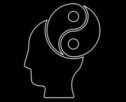This marijuana thing. (Mom, Dad, look away).
Okay.
Whether you’re like me or thankful you’re not (!), your primary objection to the illegality of marijuana possession and use, which, barring some recent exceptions (e.g., Colorado) has been universally albeit variably enforced by the State (I’m using “State” here as a shorthand for local, state, and federal law enforcement), is a principled objection. Namely, that it is an improper, if not also immoral, use of State power to forbid people to put what they want in their own bodies.
Nothing novel about that objection. Libertarians of all stripes have for decades made it the basis of their argument that MJ ought to be legal, at least decriminalized (the two are different, but only in degree). Certain other libertarians have made practical arguments for why MJ should be either decriminalized or legalized; the dismal record of the WarOnDrugs comes to mind. This libertarian, however, has not been persuaded that any argument beyond the one for the straightforward concern for maximizing personal freedom & liberty is necessary. Surely we can all agree that absent a clear and compelling State interest, the government — Our government — misuses its power when it abuses lessens our liberty. Further, the prevention of certain afflictions in some individuals — skipping school, laziness, insatiable appetites (the “munchies”), fantastic dreams, periods of emotional maladjustment, times of torpor, attention deficit, delusions of grandeur, etc. — is not a clear and compelling State interest. If it was a clear and compelling interest it would be better served by the exercise of State power to regulate parental control, or, to nip it in the bud altogether, human reproduction. Know what I’m sayin?
I never knew or cared when I used MJ how it worked. My fascination with pharmacology arrived many years after the last time I smoked a joint, and wouldn’t you know it, now that MJ’s becoming legal I have no interest in using again — “I can have that? I don’t want that.” What I didn’t know then but know now is that human beings express two cannabinoid receptors (CB1 & CB2), preferentially on the surface of immune cells (e.g. B-cells) but also in the brain, on sensory neurons. Why do we have these receptors? Well, when they’re activated they regulate a diverse range of important biological processes, some of which involve the perception of pain, but also — wait for it stoners — pleasure, feeding, and motivation. How are the cannabinoid receptors normally activated? By cannabinoids, of course, small molecules your body makes all on its own (endogenously), one example of which is anandamide, aka a neurotransmitter. Turns out that 9-THC, the main active ingredient in MJ, is also a cannabinoid and a potent activator of CB1 & CB2.
Now, I don’t suppose that all those years ago had I offered up a precocious comeback like, “Hey man, we were just exercising our cannabinoid receptors,” it would have done diddly to get me out of hot water when busted for using MJ. However, a more generous view may have been that this young man was a “budding” pharmacologist, merely running an experiment. On himself.


However, a more generous view may have been that this young man was a “budding” pharmacologist, merely running an experiment. On himself.
A regular Albert Hofmann.
I like the comparison.